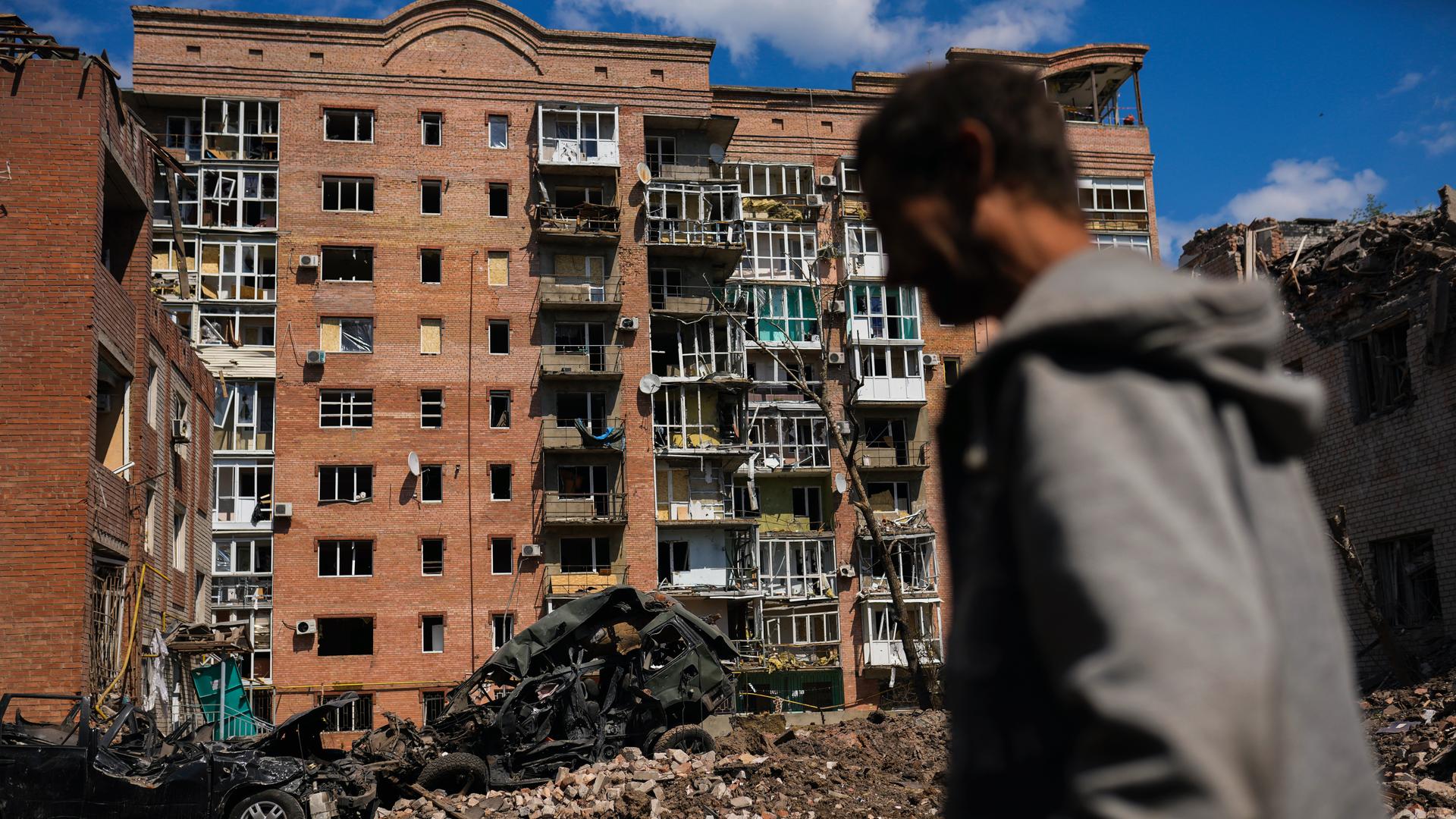Since the start of the war in Ukraine in February, 28-year-old Orest Leshnevskyy has helped treat hundreds of children with various health problems — from cancer to kidney failure to heart problems.
As the war raged on, hospitals in other parts of the country were affected, he said. People started to move from areas under fighting to Lviv in the west, where Leshnevskyy is based, and it’s considered relatively safe.
“As a physician, it’s my duty to help,” he said, speaking from Lviv. “I am safe here but it’s a really hard time.”
Leshnevskyy and his colleagues had never trained to deal with war casualties and here they were — thrown into a chaotic war. They wanted to be prepared in case the fighting intensified even more. One skill they wanted to improve on, he said, was how to deal with a possible chemical attack by Russia.
In response to their concerns, the Chicago-based MedGlobal, a medical and humanitarian nongovernmental organization that does humanitarian work in conflict zones, developed training for them on the subject.
So far, there have been no official confirmed cases of Russian use of chemical agents in the war in Ukraine.
Related: Ukrainian ballet dancers displaced by war find a home on international stages
On April 11, media reports emerged about allegations of chemical use in the southern city of Mariupol but it was not officially verified.
Still, Leshnevskyy said that he insisted on the training, which began in April and is ongoing, because before February “no one even imagined […] that a neighboring country would invade its friendly nation. Can we be worried about using chemical weapons? Yes, yes, we are worried about that because we don’t know what Russia will do next.”
Leshnevskyy wasn’t alone — doctors all over Ukraine have expressed interest.
“All of them [in the sessions] were interested to know more about how to be prepared for chemical weapons, which was surprising for me. I mean, I was reading some of the reports about the prospects of using chemical agents by the Russians but I didn’t expect Ukrainians to be that concerned. But they were.”
“All of them [in the sessions] were interested to know more about how to be prepared for chemical weapons, which was surprising for me,” said Dr. Zaher Sahloul, who heads MedGlobal. “I mean, I was reading some of the reports about the prospects of using chemical agents by the Russians but I didn’t expect Ukrainians to be that concerned. But they were.”
In a video he shared with The World, rows of medical workers wearing white lab coats listen intently to a presentation on the topic. Some crane their necks to get a better look at the model in a hazmat suit in front of the auditorium.
Related: Ukraine’s information war is winning hearts and minds in the West
In another session, this one conducted over Zoom, a chemical expert in Florida explains the different types of chemicals to the physicians in Ukraine — “choking agents like chlorine, blister agents, mustard gas, the nerve agents,” he says.
Sahloul has personal experience with chemical weapons.
Sahloul is Syrian American and he explained that Syrian physicians developed their skills about chemical attacks during the war in Syria. A 2019 report by the Global Public Policy Institute, a think tank in Berlin, put the reported incidents of chemical weapons use in Syria between 2012 to 2018 at more than 300.
The United Nations and the Organization for the Prohibition of Chemical Weapons investigated some of them and concluded that the government of Bashar al-Assad was responsible.
Sahloul remembered one incident, in August 2013, when one of his colleagues, an anesthesiologist in charge of a small hospital outside of Damascus, came under attack.
“Within a couple of hours, he had 700 plus patients. All of them [were] suffocating. All of them had twitches and convulsions,” Sahloul recalled.
The physician had to make a split-second decision, Sahloul said, about who to save and who to let go. Despite his best efforts, he couldn’t save everyone, he said, and by the morning, more than 144 of his patients died — two-thirds of them were children.
Related: Thousands join Ukraine’s foreign legion to fight against Russia — including one Utah woman
“We accumulated a lot of knowledge on chemical agents painfully in Syria,” Sahloul said. “Many experts who provide the training, they provide the training on theoretical knowledge […] but only Syrians have practical knowledge.”
Sahloul said that he sees a lot of similarities between the tactics that Russia used in Syria and the ones it is using in Ukraine — the targeting of medical facilities, disregard for civilian life, and the undermining of international law.
Another painful lesson Sahloul said he has learned from the experience in his own country is that it’s essential for medical workers to protect themselves while helping others.
“Because if you lose a physician or a nurse, it’s very difficult to replace [them], especially in a war situation where you already have a shortage of health care workers,” he explained.
Sahloul said that his team will continue to provide training and support in Ukraine.
Related: How weapons get to Ukraine and what’s needed to protect vulnerable supply chains
Leshnevskyy, the surgeon in Lviv, said that he keeps his chemical mask and protective gear nearby.
He said that he feels more confident now that he has some training — but he prays he will never have to use what he learned.
The World is an independent newsroom. We’re not funded by billionaires; instead, we rely on readers and listeners like you. As a listener, you’re a crucial part of our team and our global community. Your support is vital to running our nonprofit newsroom, and we can’t do this work without you. Will you support The World with a gift today? Donations made between now and Dec. 31 will be matched 1:1. Thanks for investing in our work!
